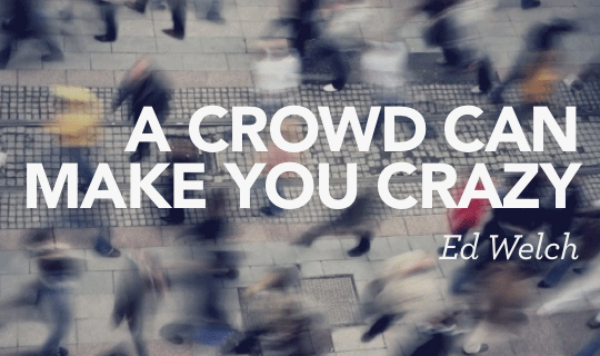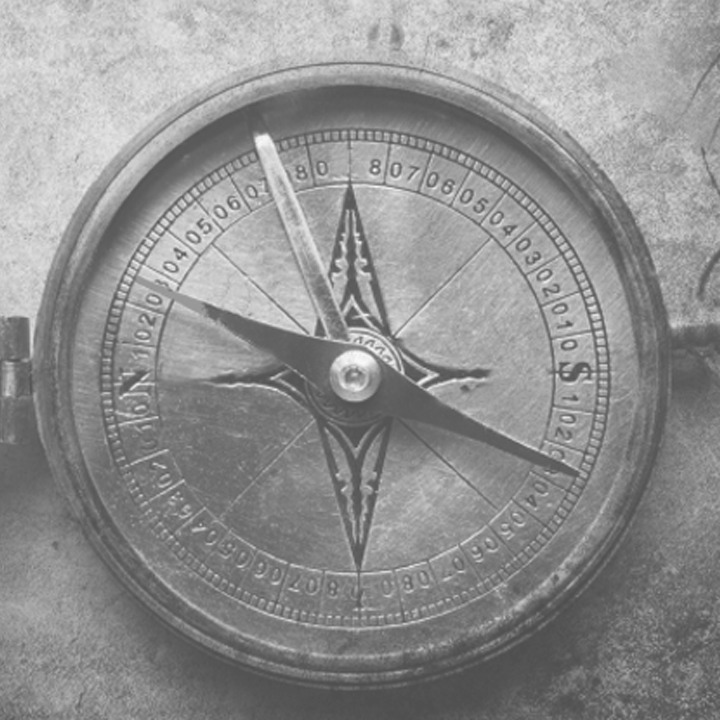
A Crowd Can Make You Crazy

By: Ed Welch
Crowds are scary.
Many of the stupid, foolish and sinful things we do involve a crowd, even if the crowd is just one or two other people. Examples:
- Anytime I was in a car going way too fast, there were ‘other people’ in the car too.
- The old college streaking phenomena—don’t ask.
- Hazing, the cruel things that inductees are subjected to, would never be done apart from a group.
- Angry youths throw rocks at police, which none of them would do if they were by themselves.
- All early use of drugs or alcohol is crowd-induced.
- Soldiers desecrate the dead body of an enemy combatant. Alone, it would have never happened, but together it did—and it was caught on film and they will be court-marshaled.
“My son, if sinners entice you, do not consent” (Pro.1:10).
It is as if sin and foolishness need only the slightest encouragement to break loose. Psychology 101 calls it the ‘risky shift’, in which individual opinions move in a more polarized and risky direction when in a group. It’s probably what lies at the heart of the housing market collapse. Somebody said, “The housing market is sure thing. Let’s make even more money by offering home loans to people who can’t really afford it. What could happen? . . ..” And soon others followed…. “Hey, they are doing it, it must be okay.”
We are not very good at imagining consequences to begin with. Now add another voice that accents the present thrill or gain and ignores what could happen next, and all of a sudden you are like a football team, hooting and hollering with excitement before the big game, totally in the moment and only in the moment.
So, when the behavior is exposed, and the question is asked, “What were you thinking?!” The answer is rightly, “I don’t know.”
If there is more going on in the mind, it might be a simple formula: the larger the crowd, the less the blame. If I make a foolish decision and get caught, I am to blame. But if I am with four friends, I only share in 20% of the blame, if 99, then only 1% of the blame. This is the kind of formula that can lead to crucifixions.
Yes, this is familiar ground. Peer-pressure revisited. Every wise person should be alert to it.
Three questions:
- Are we alert to this human tendency, and can we find illustrations of it in our own lives? When we can’t see it, we are more vulnerable.
- Do we consider consequences to our actions? And do we ask others to help us gauge consequences? Take a look at Proverbs. So many of the sayings invite us to look into the future and anticipate deleterious results.
- Do we know that we appear before the Lord individually, not as part of a group? Share-the-blame is a myth. We live as if the spotlight were on us. We live as if everything we do were public.
This post is shared from the Christian Counseling & Educational Foundation. (Find the original post here.)
About the Author:
Edward T. Welch, M.Div., Ph.D. is a counselor and faculty member at CCEF. He earned a Ph.D. in counseling (neuropsychology) from the University of Utah and has a Master of Divinity degree from Biblical Theological Seminary. Ed has been counseling for over 30 years and has written extensively on the topics of depression, fear, and addictions. His books include: When People Are Big and God is Small; Addictions: A Banquet in the Grave; Blame it on the Brain; Depression—A Stubborn Darkness; Running Scared; Crossroads: A Step-by-Step Guide Away From Addiction; and When I Am Afraid: A Step-by-Step Guide Away from Fear and Anxiety.
